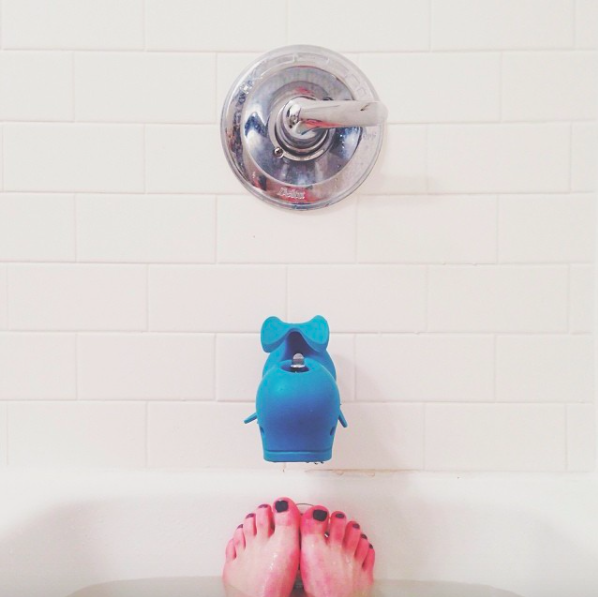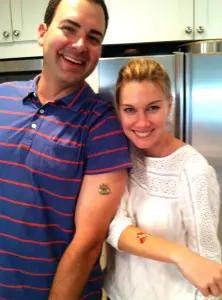 Like I said in Wednesday’s post, this Mother’s Day week has me feeling a bit nostalgic, so I went back and read my previous Mother’s Day posts (those links are at the bottom of the post). It was funny to me because they all had the same theme – the “oxygen mask” theory of taking care of oneself. Clearly I have a hard time with this -ha! This got me thinking about my sessions with my counselor, Stephanie. Almost every visit she will ask me about my rhythms of self-care – what I am doing to take care of myself. I now know how important it is because I’ve learned and reaped its benefits, but I don’t think I’ve ever actually asked her why. Hello, where have I been? So I asked her if she would lend me her brain for this post and she agreed! I asked her three simple questions, and I learned so much from her answers!
Like I said in Wednesday’s post, this Mother’s Day week has me feeling a bit nostalgic, so I went back and read my previous Mother’s Day posts (those links are at the bottom of the post). It was funny to me because they all had the same theme – the “oxygen mask” theory of taking care of oneself. Clearly I have a hard time with this -ha! This got me thinking about my sessions with my counselor, Stephanie. Almost every visit she will ask me about my rhythms of self-care – what I am doing to take care of myself. I now know how important it is because I’ve learned and reaped its benefits, but I don’t think I’ve ever actually asked her why. Hello, where have I been? So I asked her if she would lend me her brain for this post and she agreed! I asked her three simple questions, and I learned so much from her answers!
Why is taking care of ourselves and having a rhythm of self-care so important?
“I think all moms would agree that taking care of themselves is important, but I think they would also acknowledge that it feels more like a luxury than a weekly practice. Let’s face it, taking care of our children, spouse, friends, and others seems like a very good thing. …it’s validating. Of course, there is nothing wrong with helping and caring for others. However, it comes at a price when it is not in balance with caring for ourselves.
I’m a firm believer that we cannot give what we do not have, and I would even go so far as to say that you cannot love well if you are not able to love yourself. Part of loving oneself well is being able to prioritize yourself in addition to, NOT in place of, loving others. For a lot of moms, it’s backwards. Loving others and taking care of kids helps them feel loved vs. loving themselves first and then loving others. The former is loving out of a place of scarcity and the latter is loving out of a full heart which overflows in compassion and love. An important note is that for some, the idea of loving themselves is daunting. Past negative or even traumatic experiences prevent us from doing this. Part of loving yourself well is acknowledging that you may need extra help to work some of the barriers that prevent you from loving yourself well. This is when we need to reach out to trusted friends or advisors to help us.
The reality is we all have “emotional cups”, and we often do not know what is in our emotional cups until they overflow. I think all moms can identify with the feeling of needing a break or feeling overwhelmed or even burned out. As moms, the usual pattern is to take care of others’ needs and then take a break for ourselves when we are at the end of our rope. We take a “spa” or “me” day. Now don’t get me wrong, a nice spa day is nice; however, I would advocate for a rhythm of care that prevents burnout. As women, often we don’t know what is in our emotional cups. We just do and go and be without paying attention until it’s too late. Good self-care is about getting ahead of the stress. It’s about a weekly rhythm.”
What does a rhythm of self-care look like and why should we keep it up?
“A rhythm of self-care looks like paying attention to what is going on with ourselves on a weekly basis. A holistic approach encompassing all aspects of ourselves: emotional, mental, physical and spiritual is needed. For example, despite my busy schedule, asking myself what I am doing in each of these areas to address my current needs is important. Emotionally: I may have lunch with a friend. Physically: I may lean into healthy choices with my eating. Mentally: I am doing something that is new or challenging. Spiritually: I am leaning into meditation, my place of worship, relationship with my higher power. We are usually good at addressing one or two of these areas but not all of them. It makes sense that there needs to be an awareness and intentionality of leaning into something small each week to address our holistic selves. In doing this, we prevent burnout and can better love and care for others.”
Is self-care selfish?
Self-care isn’t selfish. Selfishness is taking care of yourself at the expense of others. A rhythm of self-care allows you to not only be a better self but your true self, which allows you to be in a better space to love others. We love from a healthier place that is more authentic, more self-compassionate vs. pushing ourselves to the brink of destruction. It’s taking care of yourself AND taking care of others; it’s not an either/or, it’s a both/and. Finally, the more you are able to care for yourself first, you actually help your children by setting a great example. You show, by example, what it looks like to be mindful of yourself and others. This is a valuable lesson for them that will ultimately help them in life.”
What I learned from her answers:
I go to Stephanie weekly, and whoa, I learned a ton from her answers! I’m going to be honest, I’ve read her answers multiple times because she makes so many great points that I really wanted to soak them in, like the distinction between “not loving out of a place of scarcity but rather loving out of a full heart which overflows in compassion”. That hit me because I can really tell when I’m loving out of a place of scarcity by my reactions vs. when I’m loving out of a place of compassion.
I also really liked her point about getting in a weekly rhythm to get ahead of the stress before it’s too late. I’ve personally worked really hard to put in place rhythms of self-care. I sit in my chair every morning and pray/read, I try to go to an exercise class at least twice a week, I call friends that fill my emotional cup, and the blog challenges me mentally every day! But after reading her examples, I realized that a rhythm doesn’t have to be adding something additional to my week, it can be more about making small adjustments.
I struggle with feeling that self-care is a bit of a luxury and selfish, so this point really hit home: “Selfishness is taking care of yourself at the expense of others. A rhythm of self-care allows you to not only be a better self but your true self, which allows you to be in a better space to love others…a healthier place that is more authentic, more self-compassionate vs. pushing ourselves to the brink of destruction.”
Stephanie has been such an encouragement to me. I hope this post has served as an encouragement to you. If you’d like to contact Stephanie, you can visit her website at https://stephanierfrey.com.
My past Mother’s Day Posts:
I’m Not Alone; You’re Not Alone
Image: Traci Ling




Thank you for this post! I am currently feeling at the end of my rope, I totally get it. As a mom I do feel guilty when I ask for some “me” time. Then I find when I get it, I have NO idea what to do or what brings me joy, anymore. It is comforting to know I am not the only one, who feels this way. Thank you for sharing!!!
Yes, Me TOO!!!! Thank you for your comment! It makes me happy!
Wow, that was so good and helpful! Thank you for sharing this!
Thank you for comment, Emily!
Thanks for sharing and letting me know I am not alone. I have the same problem, too. My counselor even drew an oxygen mask on my note-chart and asked me each time during the visit if I’ve improved my self-care level. I totally get what you meant. Yes, a lot of time we only think about others but forget to take care of ourselves first. Without a healthy body/mind, we can’t take care of our loved ones. I love the positive energy you share with us. I’ve been enjoying reading your blog and appreciating every aspect you shared. Thank you so much and happy mother’s day (Cheers!).
Thank YOU for letting me know I’m not alone! You put it so succinctly, without a healthy body/mind we can’t take care of our loved ones! Thanks for your comment!
This post was WONDERFUL…struggle so much with not feeling guilty when taking care of myself! My mother’s own habits were off (she seemed like she took care of herself A LOT) so I’m constantly running from that model. The trouble is that I go the complete other way and ironically I can’t really help anyone else if there’s nothing left to give! Anyhow, saving these pearls of wisdom to read again and again!
You just made me realize something, my mom didn’t take care of herself and so I’m running from that model! Ha! I’m glad I’m not alone. Thanks for your comment!
I’m older: almost 69. When you are older, you tend to think your real “purpose” has passed. You feel like a dinosaur waiting for extinction. My remedy has been to fill my life with as much “purpose” as possible …the things that “have worth” to reestablish my worth. I’m exhausted! My daughter told me to read your blog. I’m so glad I did. Thank you for baring your soul to minister. That’s what it’s all about, after all. I’m starting my rhythm of self-care…feeling excited about it! I love definition, and you were clear about a path.
Tune, I’m so honored that one of the wisest people I know found “definition” from one of my posts. Thank you for all of the words of encouragement you speak into my life. Thank you for your comment!
After a busy day and a demanding weekend, you are filling my emotional cup with this post. In fact, I think you just changed the course of my whole week!! Thank you!
Your comment makes my day. Thank you for reading!